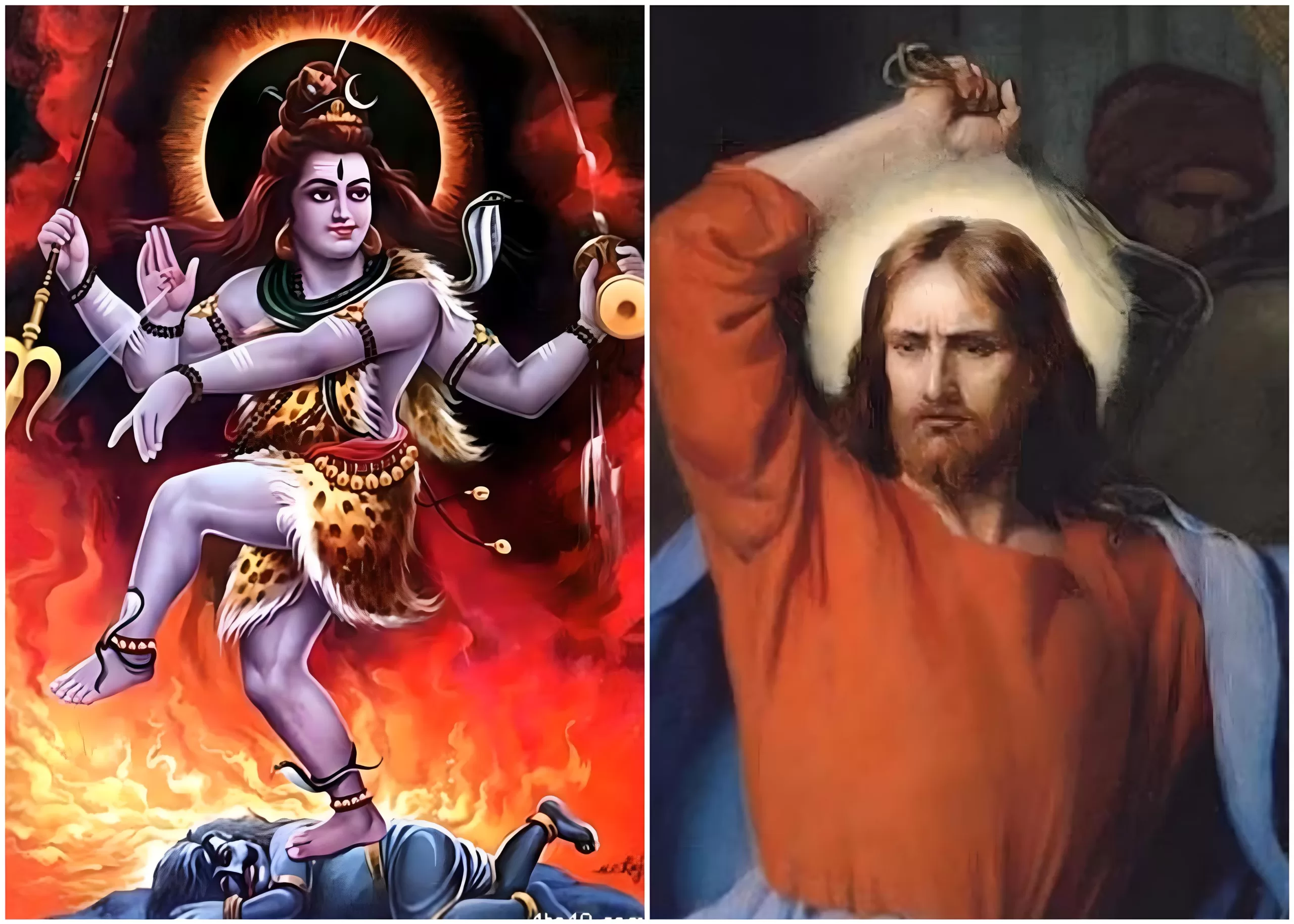Reflecting on Lakulisha in the context of the ‘Shaivite revival’ (third century AD), the French Indologist Alain Daniélou, in his work While the Gods Play, draws an intriguing parallel with events occurring in Western spirituality:
As Lakulisha realised the Shaivite revival, we see similar movements unfolding in many other parts of the globe. In the West, Mithraism was evolving, and in the Middle East, Simon Magus and Jesus (Isha) emerged, whose unconventional and liberating message was close to the ideas of Shaivism.
Jesus opposed the greedy mentality and the caste of Pharisee priests, driving the merchants from the temple. He despised material possessions. He rejected puritanism and defended a prostitute and an adulteress. He never condemned physical love and was likely aware of its Platonic form (Mark 14:51-52). He surrounded himself with common people. During the Last Supper, he conducted a ritual of sacrifice and consumption of the victim. His transfiguration and consecration are Shaivite concepts. He was born in a stable, like Gosala, next to a bull, a sacred animal, and a donkey, an unclean animal. Little is known about his teachings, which soon after his disappearance were distorted by the Antichrist, Paul of Tarsus, who misinterpreted his message, creating its complete opposite and spawning a puritanical and tyrannical state religion, which then conflicted with the Gnostics of the early centuries with the aim of gradually seizing political power.
The Dionysian legacy was preserved in esoteric Christian sects for a long time, as it was in Judaism or Islam within the framework of Kabbalah or Sufism, but gradually declined, degenerating into merely an intellectual game.
Interestingly, Alain Daniélou, contrary to the commonly held view of Christianity within Traditionalism as an exclusively ‘restraining’ religious current, names the original message of Jesus ‘liberating’, effectively equating it to Shaivism (possibly based on apocryphal interpretations). Thus, according to the French Indologist, ‘original’ Christianity, like Shaivism, was characterised by the acceptance of the physical aspect of love, comparable with the ‘Dionysian’ in the Nietzschean understanding.
This Dionysian legacy, characteristic of all authentic traditions, aims at the abolition of the duality between the material and the supermaterial, perceiving all aspects of human existence as a unified whole with the consequent acceptance, among other things, of its fleshly element, necessary for the harmonious being of the personality (something the West chose to forget for more than a thousand years).
The return of the Dionysian beginning through the defeat of puritanism in the twentieth century occurred in a degenerate form, leading to the destruction of the natural magnetism existing between the sexes and to the mass degradation of the traditional understanding of love, which was first persecuted for centuries and then failed to be fully remembered (Julius Evola explores this issue in detail in The Metaphysics of Sex). This is a necessary component of genuine knowledge.
Alain Daniélou retains cautious optimism in this aspect, quoting the Puranas:
The end of the Kali Yuga is a particularly auspicious period for acquiring true knowledge. Some will attain wisdom soon, for the merits acquired in a year of the Treta Yuga can be obtained in a single day of the Kali age… At the end of the Kali Yuga, the god Shiva will appear to restore the true path in a secret and hidden form.
Concerning love, the potential for self-revelation and deep understanding exists within each of us. However, the modern world’s institutional and cultural settings often do not support or encourage this process of uncovering. Although this kind of self-discovery can happen, it tends to be in exceptionally rare and individual circumstances. Nevertheless, it is definitely possible. Interestingly, such moments of realisation can catch us off-guard, occurring when and where we least anticipate them.





